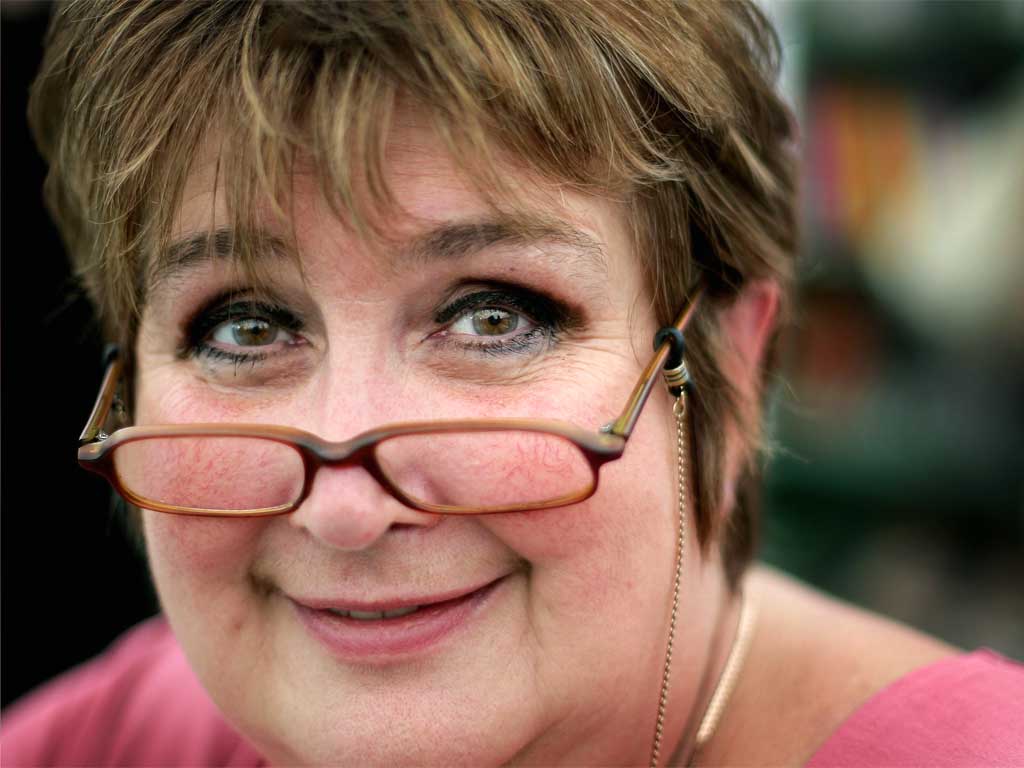I'm not surprised that the BBC chastised Jenni Murray over her transgender comments – this is what institutional sexism looks like
Not having an opinion on these issues is presumably a personal and professional impossibility for the Woman's Hour presenter


Impartiality is the necessary fiction that allows the BBC to exist. A public service broadcaster that didn’t attempt to hold its head above bias would be untenable, and this is why the BBC’s editorial guidelines make it clear that news and current affairs presenters are not to publish their personal views on “controversial subjects”.
But what do you do when the controversy comes for you? When, however much you’d rather not be the object of dispute, you become the frontier in an ideological war? When what you are – and how you name yourself – slips from neutral to contentious, without you doing anything?
Jenni Murray has presented the BBC Radio 4's Woman’s Hour for 30 years, and she’s been a woman for even longer than that. At the weekend, the Sunday Times published an article by her titled “Be trans, be proud — but don’t call yourself a ‘real woman’”. Under that headline, Murray criticised some claims of trans activism (and she was careful to say she was talking about the extreme of the debate): that anyone who identifies as a woman has “always been a woman” no matter the age at which they transition, and that references to the female body should be censored in the interests of inclusion.
Not having an opinion on these issues is presumably a personal and professional impossibility for Murray. After all, it was in a Woman’s Hour interview with Murray that India Willoughby, a former ITV news presenter who transitioned in her 40s, declared that women with unshaved legs are “dirty”. How are we supposed to interpret that – a grossly sexist comment – without acknowledging that Willoughby’s views are shaped by decades of living as a man, and, although she may not have personally felt them, did nevertheless enjoy the structural privileges that came with being male? How is Murray supposed to feel about it, knowing that the BBC and the media in general has a miserable track record of sexism and ageism?
And, as Murray writes of demands that breast cancer and breastfeeding be renamed “chest cancer” and “chestfeeding”: “Sorry, but I breastfed my kids and it was my breast that was cut off when I had cancer. No debate.” Just by having a female body and the will to name it, Murray becomes “controversial”. There’s no way to avoid picking a side when you yourself are the disputed territory.
In fact, look elsewhere on the BBC, and you’ll see that impartiality on the gender issue is long gone – in the opposite direction to Murray’s civil questioning. Last night, Crimewatch on BBC One featured an appeal to trace Lisa Hauxwell, a 48-year-old convicted of two rapes and seven charges of indecent assault against teenage girls. In other words, Hauxwell is a perpetrator of male violence: in fact, of a kind of violence that can only be male, because the Sexual Offences Act 2003 describes rape as penetration with a penis and without consent.

By any definition, it is difficult to see how Hauxwell can have been “a woman” when committing such a fundamentally masculine crime. But Hauxwell may not be a woman in any sense at all now: the Crimewatch website reports that “she… could possibly be living as a man.” What possible function does a feminine pronoun serve in that description, other than to blur the gendered nature of Hauxwell’s crime? Other than to make it subtly but definitely more difficult for the public to identify a male offender who is a threat to female adolescents?
Hauxwell presumably did not check whether his victims identified as female before assaulting them. Because the world is not organised to disadvantage and victimise people who “feel female”: it is organised to disadvantage those who are female. And there’s no more powerful example of this than watching the very definition of “woman” become tortured and unspeakable for women who want to talk about their experiences of being female, yet freely given to male sex offenders.
Jenni Murray broke the rules, because the rules are always set up to break women. The more we’re punished for saying that, the more insultingly obvious the truth of it is.
Join our commenting forum
Join thought-provoking conversations, follow other Independent readers and see their replies
Comments
Bookmark popover
Removed from bookmarks